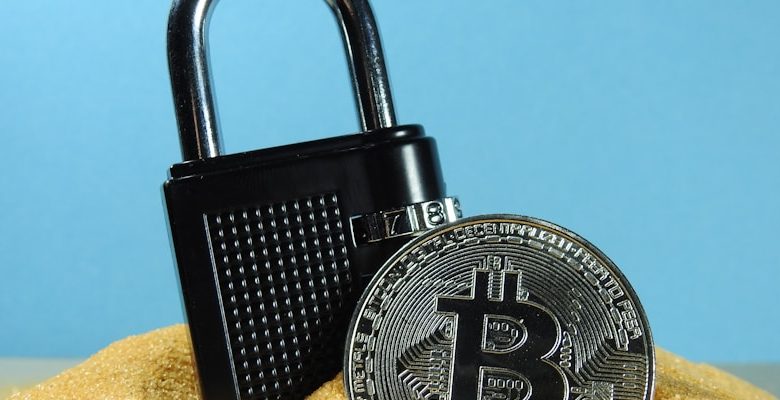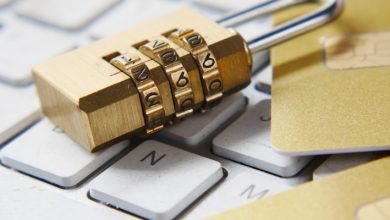How to Educate Yourself on Crypto Security Best Practices

- Understanding the importance of crypto security
- Common threats to crypto security and how to prevent them
- Choosing the right wallet for your cryptocurrency
- Best practices for creating strong and secure passwords
- Protecting your crypto assets from phishing attacks
- Staying updated on the latest crypto security trends
Understanding the importance of crypto security
Understanding the significance of crypto security is crucial in safeguarding your digital assets from potential threats. Cryptocurrencies are decentralized and unregulated, making them vulnerable to hacking and fraud. By educating yourself on crypto security best practices, you can mitigate these risks and protect your investments.
One key aspect of crypto security is the use of secure wallets. Wallets store your digital assets and provide a secure way to make transactions. It is essential to choose a reputable wallet provider and enable two-factor authentication to add an extra layer of security.
Another important consideration is to be cautious of phishing scams and malicious websites. Scammers often use fraudulent emails and websites to steal your private keys and access your crypto funds. Always verify the authenticity of websites before entering any sensitive information.
Regularly updating your software and keeping your devices secure is also crucial in maintaining crypto security. Software updates often contain security patches that can help protect your assets from vulnerabilities. Additionally, using strong, unique passwords for your accounts can prevent unauthorized access.
By understanding the importance of crypto security and implementing best practices, you can protect your investments and minimize the risk of falling victim to cyber attacks. Stay informed, stay vigilant, and stay secure in the ever-evolving world of cryptocurrency.
Common threats to crypto security and how to prevent them
When it comes to crypto security, there are several common threats that users need to be aware of in order to protect their assets. One of the most prevalent threats is phishing attacks, where scammers try to trick individuals into revealing their private keys or login information. To prevent falling victim to phishing, always double-check the URL of websites and never share your sensitive information via email or messages.
Another significant threat in the crypto space is malware, which can infect a user’s device and steal their crypto assets. To mitigate the risk of malware, make sure to use antivirus software and keep your operating system up to date. Additionally, only download crypto-related apps and software from trusted sources.
One more common threat to crypto security is social engineering, where hackers manipulate individuals into giving up their private information. To safeguard against social engineering attacks, be cautious of unsolicited messages or requests for sensitive information. Always verify the identity of the person or organization before sharing any personal details.
Choosing the right wallet for your cryptocurrency
Cryptocurrency security is crucial when it comes to protecting your digital assets. One essential aspect of securing your crypto is choosing the right wallet. There are various types of wallets available, each with its own set of features and security measures.
Hardware wallets are considered one of the most secure options for storing cryptocurrency. These physical devices store your private keys offline, making them less vulnerable to hacks or cyber attacks. Additionally, hardware wallets offer an extra layer of protection by requiring you to physically confirm transactions on the device.
Another popular option is software wallets, which can be either desktop, mobile, or online-based. While these wallets are convenient and easy to use, they are more susceptible to security risks compared to hardware wallets. It is essential to choose a reputable software wallet provider with a history of security measures in place.
When selecting a wallet for your cryptocurrency, consider factors such as the level of security provided, user-friendliness, and compatibility with the cryptocurrencies you plan to store. It is crucial to do thorough research and read reviews before making a decision. Remember, the security of your crypto assets ultimately lies in the type of wallet you choose.
Best practices for creating strong and secure passwords
When it comes to ensuring the security of your cryptocurrency assets, creating strong and secure passwords is essential. Follow these best practices to protect your accounts from unauthorized access:
- Use a combination of uppercase and lowercase letters, numbers, and special characters in your passwords to increase complexity and make them harder to crack.
- Avoid using easily guessable information such as your name, birthdate, or common words as part of your passwords.
- Create unique passwords for each of your cryptocurrency accounts to prevent a security breach in one account from compromising others.
- Consider using a password manager to securely store and manage your passwords, reducing the risk of forgetting them or using weak passwords.
- Regularly update your passwords and change them immediately if you suspect that they may have been compromised.
By following these guidelines, you can significantly enhance the security of your cryptocurrency investments and minimize the risk of unauthorized access to your accounts.
Protecting your crypto assets from phishing attacks
Protecting your cryptocurrency assets from phishing attacks is crucial in maintaining the security of your investments. Phishing attacks are a common tactic used by cybercriminals to trick individuals into revealing their sensitive information, such as private keys or passwords. To safeguard your crypto assets, follow these best practices:
- Be cautious of unsolicited emails: Avoid clicking on links or downloading attachments from unknown senders. These emails may contain malicious links that can compromise your security.
- Use a hardware wallet: Consider storing your cryptocurrencies in a hardware wallet rather than an online exchange. Hardware wallets provide an extra layer of security by keeping your private keys offline.
- Enable two-factor authentication: Set up two-factor authentication on all your cryptocurrency accounts to add an extra layer of protection. This will require you to enter a code sent to your mobile device in addition to your password.
- Double-check URLs: Before entering any sensitive information, make sure you are on the correct website by verifying the URL. Phishing websites often have subtle misspellings or variations in the domain name.
- Keep your software up to date: Regularly update your operating system, antivirus software, and cryptocurrency wallets to patch any security vulnerabilities. Cybercriminals often exploit outdated software to launch phishing attacks.
Staying updated on the latest crypto security trends
Staying informed about the latest developments in crypto security is essential to protect your investments and personal information. Keeping up with emerging trends and best practices can help you stay one step ahead of cyber threats.
One way to stay updated on crypto security trends is to follow reputable sources such as industry blogs, news websites, and social media accounts of cybersecurity experts. These sources often provide valuable insights and updates on the latest security threats and solutions.
Additionally, attending conferences, webinars, and workshops on crypto security can help you gain a deeper understanding of the evolving landscape. These events often feature expert speakers who share their knowledge and experiences in the field.
Engaging with online communities and forums dedicated to crypto security is another effective way to stay informed. These platforms allow you to connect with like-minded individuals, share information, and learn from others’ experiences.
By staying proactive and continuously educating yourself on crypto security best practices, you can better protect your assets and data from potential threats. Remember, knowledge is power when it comes to safeguarding your crypto holdings.



